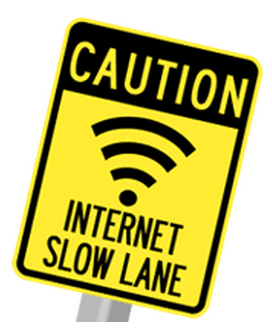I think these are going to get more frequent. We received another copyright claim, accusing us of publishing a photograph without authorization. They wanted around €500, part of that for the licence, and part of that for running it since 2009.
This one, from a German company, was easier to deal with than an American firm that approached us with a similar accusation some years back, using the same tactic of including a pro forma invoice in the body of the email. I don’t remember the US firm’s name, and right now I’m not comfortable revealing the German firm’s since I’m still checking to see how legitimate they are.
I remember the Americans dragging it out over days, never answering the substantive parts of my legal arguments—gaslighting is part of their intimidation tactics. They wanted me to cough up, citing sections from our Copyright Act—an act which I knew better than they did and how the sections actually operated.
Their last email was citing one section which I knew they would fail on if they were to go to court, so I said, ‘You already have my response.’
They never actioned any lawsuit and I felt the whole thing was a scam. The way the American was avoiding getting to the core of the argument and not understanding commercial law (which could come into it as well as copyright law) told me as much.
Of course the image at issue was used legitimately, but in this case I didn’t have any evidence where it was from. All I knew were our procedures.
I never let on I had a law degree and he was emailing our main work email, so he never saw my signature file with my qualifications.
In this latest case, the approach was a little softer. In addition, things were a lot clearer, since I recall how we came to run the allegedly pirated photo of a Coty perfume: it came via a press release.
The beauty of having used Eudora as my email program—and still using it 27 years later—is being able to grab old mailboxes and load them up again.
And there it was, the press release from October 2009 in the inbox—twice, in fact, one sent to a former editor and one to our general media wire address. In there was the download link, which, happily, made it into the Internet Archive so I could confirm for myself that that was the source.
This German company had an online process where you could feed your evidence and details of your licence. I provided one of the releases and fed in the name and company of the person responsible. One of the companies was Coty, Inc., whom I very much doubt would not have made sure we in the press were covered.
In the message field I advised that if there were a claim for costs, they should approach Coty, Inc. and Coty SAS—all the while knowing that they would have secured the necessary licence.
Tonight, the German company emailed to say they would not pursue the claim further, which was a speedy resolution—but I wonder if they will continue going after people who got their image the same way but not having records stretch back that far. If they are con merchants, they will. If they’re legitimate and professional, they won’t.
A few things strike me here. The first is the timing: sending out on December 21 and demanding a reply by December 28. There’ll be offices that aren’t working through the Christmas break.
Secondly, my memory is that pro forma invoices, as far as New Zealand is concerned, are illegal. I can also think of them breaching other legislation. (N.B.: this blog post doesn’t constitute legal advice.)
Thirdly, will everyone still have their 2009 emails and will the Internet Archive have found the download link to spider? Unlikely—and this makes it unfair on the publisher.
Fourthly, I would say this claim falls outside the Limitation Act.
Don’t get me wrong: I believe photographers, indeed any author within the meaning of the Copyright Act, should be rewarded for their work. We send out DMCA notices a lot—but only after we have written a velvet-gloved email to the publisher or a comment on their blog.
I’ve even toyed with using such services ourselves over a series of articles, some hosted by Go Daddy who seems reluctant to have their customer remove them.
I would only consider them if I can identify the parties who have allegedly pirated, and not leave it to their systems, which appear to make overly sweeping approaches.
Further, I do not approve of the pro forma invoice tactic.
I can see through the legalese as I’ve had legal training and specialized in intellectual property. But I don’t believe everyone can see through it. They’re designed to intimidate, and based on some forum discussions, that intimidation works.
And I fear we are going to see many more of these. Like our experience earlier this year with a Spanish company, it seems they automate their processes too much, identifying piracy where there isn’t any. Gullible companies like Facebook and Google believe them and act against a smaller player.
Typically, copyright owners have turned a blind eye to the use of images of, say, packaging if the associated article is about them and promotional in nature (again, as this was—we alerted our readers to a fragrance launch).
I can’t promise you that we have records of every image we’ve used, because we might have clicked on the email server-side to get the download link, and Eudora’s filters took out the actual message once it was imported, for example. Or one of us went to a free photo site where an uploader hadn’t done their checks.
All I know is that we’ve behaved ourselves. I’d never accuse someone of doing something that they didn’t do and make my approach look like a scam. One hopes copyright reform will balance things on this front.


